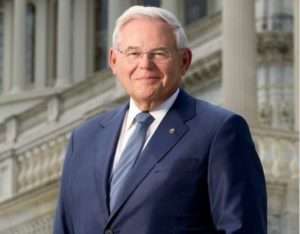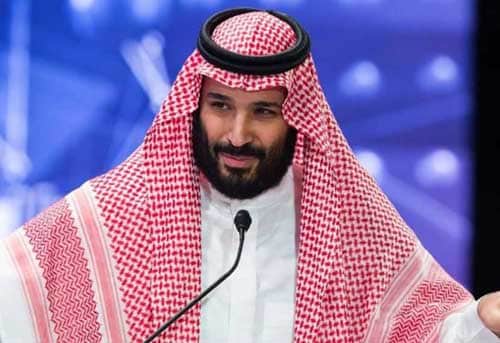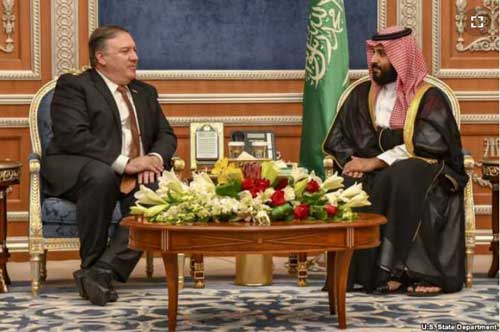“The United States must immediately freeze all aspects of our cooperation with Saudi Arabia,” said Sen. Bob Menendez, chair of the Senate Foreign Relations Committee.

The Democratic chair of the Senate Foreign Relations Committee pledged late Monday to block all future U.S. weapons sales to Saudi Arabia as backlash over OPEC’s decision to cut oil production and push up gas prices continues to grow on Capitol Hill.
Sen. Bob Menendez (D-N.J.), who has veto power over foreign arms sales, said in a statement that OPEC’s plan to slash production by two million barrels a day in a bid to prop up oil prices amounts to a “decision to help underwrite Putin’s war.” Russia, an OPEC ally, stands to benefit from higher oil prices without having to reduce its own production.
“It’s time for our foreign policy to imagine a world without this alliance with these royal backstabbers.”
“The United States must immediately freeze all aspects of our cooperation with Saudi Arabia, including any arms sales and security cooperation beyond what is absolutely necessary to defend U.S. personnel and interests,” Menendez said Monday. “As chairman of the Senate Foreign Relations Committee, I will not green-light any cooperation with Riyadh until the kingdom reassesses its position with respect to the war in Ukraine. Enough is enough.”
With his statement, Menendez—a war hawk—joined progressive lawmakers such as Sen. Bernie Sanders (I-Vt.) and Rep. Ro Khanna (D-Calif.) in demanding an end to U.S. military aid to the Saudis, the largest buyer of American weaponry.
On Sunday, Khanna and Sen. Richard Blumenthal (D-Conn.) announced legislation that would “immediately halt all U.S. arms sales to Saudi Arabia.” Last week, three House Democrats introduced a bill that would require the removal of U.S. troops and missile defense systems from Saudi Arabia and the United Arab Emirates, a leading member of the OPEC cartel.
Over the past several years, the U.S. has approved tens of billions of dollars worth of weapons sales to the Saudis as they’ve waged a catastrophic war on Yemen, sparking a massive humanitarian crisis. The U.S. has also cooperated with the Saudis militarily in other ways, including by refueling the oil kingdom’s warplanes, supplying fighter jet parts, and teaming up with the country’s murderous leadership to build high-tech bomb parts.
Recent congressional efforts to block arms sales to the Saudis—including major deals approved by the Biden administration—have fallen short, but the OPEC decision could mark a key turning point as top Democratic lawmakers demand a complete reevaluation of U.S.-Saudi relations.
Just over a year ago, Menendez notably opposed a Senate resolution that aimed to block a $650 million sale of missiles to the Saudis. The bipartisan resolution ultimately failed to clear the upper chamber.
In a statement last week, Sen. Dick Durbin (D-Ill.)—the chamber’s second-ranking Democrat and a supporter of previous attempts to block arms sales to the Saudis—declared that “it’s time for our foreign policy to imagine a world without this alliance with these royal backstabbers.”
“From unanswered questions about 9/11, the brutal murder of journalist Jamal Khashoggi, and the exporting of extremism, to dubious jailing of peaceful dissidents and conspiring with Vladimir Putin to punish the U.S. with higher oil prices, the Saudi royal family has never been a trustworthy ally of our nation,” Durbin said.
Common Dream’s work is licensed under a Creative Commons Attribution-Share Alike 3.0 License. Feel free to republish and share widely.
[content id=”79272″]








